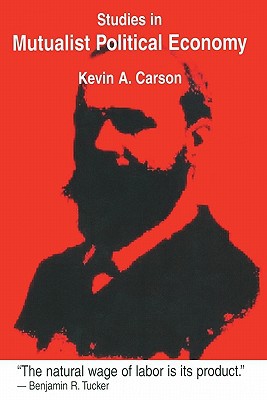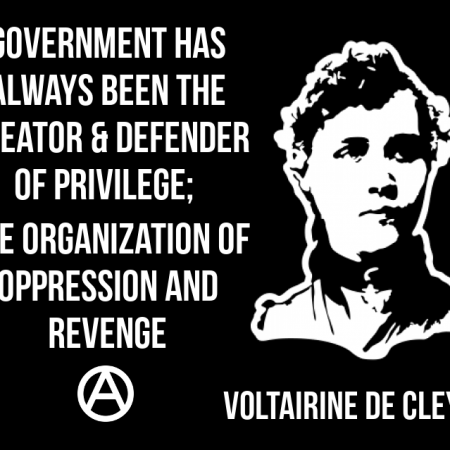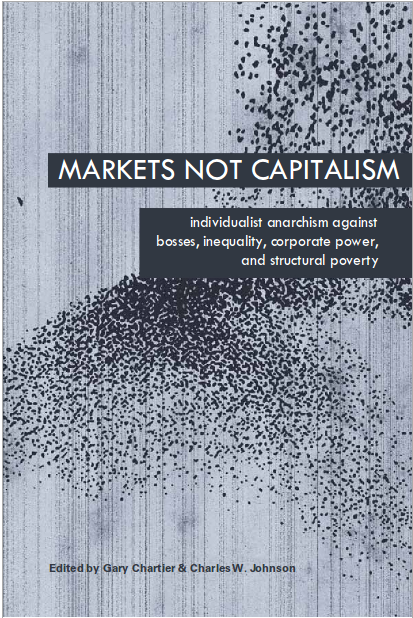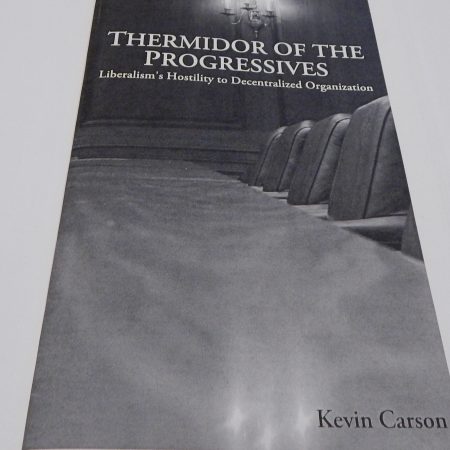Description
First published in 2005 by the author. Second edition published in 2007.
When describing his book, Kevin says: This book is an attempt to revive individualist anarchist political economy, to incorporate the useful developments of the last hundred years, and to make it relevant to the problems of the twenty-first century. We hope this work will go at least part of the way to providing a new theoretical and practical foundation for free market socialist economics.
Speaking for the Distro, I think Kevin is much too modest. This is Kevin Carson’s first big book, an immensely important document in the contemporary revival of left-libertarianism and anti-capitalist individualist anarchism, and one of the most significant developments in the last century for both libertarian politics and radical economic thinking.
Anarchists tend to look embarrassed when the subject of economics comes up. Or we mumble something about Proudhon and then sheepishly borrow ideas from Karl Marx… A specifically anarchistic approach to economic analysis has lain dormant for the last 130 years. However, with the publication of Kevin A. Carson’s Studies in Mutualist Political Economy this period of dormancy has finally come to an end. –Larry Gambone, Red Lion Press.
I highly recommend Carson’s book… That doesn’t mean I agree with everything in the book… But where I agree with it I think it is an excellent defense of the sort of anti-corporatist, pro-labour, left-libertarianism I embrace; and where I disagree with it I think it makes intelligent arguments that deserve consideration. –Roderick Long, editor, Journal of Libertarian Studies
Overall it is a valuable contribution to political economy and a timely reminder… to libertarians of how radical their creed actually is. In my view, one cannot overstate the importance of Carson’s asking libertarians: what are you defending, the free market or the political-economic system we currently live in? –Sheldon Richman, editor, The Freeman
… his remarkable Studies in Mutualist Political Economy… displays an admirable range of reading and the style invests the driest economic questions with a certain peculiar charm. –Ken MacLeod, author, Fall Revolution trilogy
Kevin A. Carson is a contemporary mutualist author and a prolific writer on subjects including free-market anti-capitalism, the individualist anarchist tradition, grassroots technology and radical unionism. He is the author of ”The Iron Fist Behind the Invisible Hand”, Studies in Mutualist Political Economy, Organization Theory: A Libertarian Perspective and The Homebrew Industrial Revolution. He keeps a blog at mutualist.blogspot.com and frequently publishes short columns and longer research reports for the Center for a Stateless Society (c4ss.org).
Contents
- Preface
Part One–Theoretical Foundations: Value Theory
- Chapter One–The Marginalist Assault on Classical Political Economy: An Assessment and Counter-Attack.
- A. Statement of the Classical Labor Theory of Value
- B.
Vulgar Political Economy,
Marginalism, and the Issue of Ideological Motivation - C. The Marginalists versus Ricardo
- D. Exceptions to the Cost-Principle: The Classicals in Their Own Defense
- E. The Marshallian Synthesis
- F. Rothbard versus the Marshallian Synthesis
- Chapter Two–A Subjective Recasting of the Labor Theory of Value
- Chapter Three–Time-Preference and the Labor Theory of Value
Part Two–Capitalism and the State: Past, Present and Future
- Chapter Four–Primitive Accumulation and the Rise of Capitalism
- Introduction
- A. The Expropriation of Land in the Old World
- B. Political Preemption of Land in Settler Societies
- C. Political Repression and Social Control in the Industrial Revolution
- D. Mercantilism, Colonialism, and the Creation of the
World Market
- Conclusion:
The World We Have Lost
–And Will Regain - Appendix: On the
Necessity
of Primitive Accumulation
- Chapter Five–The State and Capitalism in the
Laissez-Faire
Era- A. Tucker’s Big Four: The Land Monopoly
- B. Tucker’s Big Four: The Money Monopoly
- C. Tucker’s Big Four: Patents
- D. Tucker’s Big Four: Tariffs
- E. Infrastructure
- Chapter Six–The Rise of Monopoly Capitalism
- Introduction
- A. Liberal Corporatism, Regulatory Cartelization, and the Permanent Warfare State
- B. Power Elite Theory
- C. Monopoly Capital and Super-Profits
- D. Socialization of Costs as a Form of Cartelization
- Chapter Seven–Monopoly Capitalism and Imperialism
- Introduction: Elite Reaction to Crisis (With Digression on Maldristribution of Income)
- A.
Open Door Imperialism
Through the 1930s. - B. The Bretton Woods System: Culmination of Open Door Empire
- C. Export-Dependent Monopoly Capitalism (with Digression on Economy of Scale)
- Chapter Eight–Crisis Tendencies
- Introduction
- A. Accumulation Crisis
- B. Fiscal and Input Crises
- C. Legitimation Crisis
- D. Neoliberal Reaction and Political Repression
- E. Built-In Limits to Effectiveness of Neoliberal Reaction
- F. Neoconservatism as Attempted Defense Against Legitimation Crisis
- G. The Frankfurt School: Fascism and the Abandonment of the Law of Value
- H. Global Political Crisis of Imperialism
Part Three–Praxis
- Chapter Nine–Ends and Means
- A. Organizing Principles
- B. Getting There





